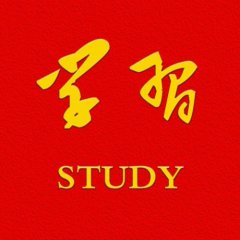Start from the native level!
Just like any other languages in the world, before you start to learn Chinese, there're some necessary preparation work that needs to be done. This includes reference books (e.g. dictionaries), assistant apps and general knowledge about the Chinese language. I know there're plenty of recommendations online nowadays, so I won't talk about those popular learning apps or Oxford Chinese Dictionary that sort of things. Instead, I'm trying to suggest learning materials from the perspective of a native speaker and reveal what native students are using to study Chinese. Although this can be disadvantageous for beginners as they're mainly for native speakers' use, it's great pro is you've got the chance to get the most authentic and precise learning reference. (At least when I throw my English-Chinese dictionary away and pick up an English-English dictionary my English did improve drastically after some initial struggles.?)
- Reference books
To learn Chinese efficiently, these reference books would be important as they serve as tools to look up information of the language to help explain your questions. I've listed several useful reference books below from which you can choose according to your needs.
- Xinhua Dictionary, 11th edition(《新华字典》第十一版)
Xinhua Dictionary was the very first modern Chinese dictionary published in 1953 and has been edited for 11 times until now. It is the most famous and authoritative dictionary in China. Basically the dictionary includes pronunciation, stroke orders, definitions, example sentences, idioms & slang and commonly-used words for basic characters. One disadvantage is that it is of course all in Chinese, which means it is difficult for a beginner to use. For intermediate and advanced level (or those who can read Chinese without much difficulty), however, it's definitely the best Chinese dictionary for learners.
- Modern Chinese Dictionary, 7th edition (《现代汉语词典》第七版)
Modern Chinese Dictionary is the standard dictionary for junior high school students designated by the education departments and it's the first standard dictionary that includes every single words in Chinese. Compared to Xinhua Dictionary, it mainly focuses on the definition of a character and words including this character. Just like the Oxford Dictionary, you can practically find every word in it, even slang and some common words in dialects! It's also suggested that this dictionary is more suitable for those who have a foundation of Chinese and can read it relatively easily since it's also all in Chinese.
- Chinese-English Dictionary, 3rd edition (《汉英词典》第三版)
Chinese-English Dictionary was compiled under the order of Chairman Mao Zedong in 1971. Its aim is specifically for foreign Chinese learners (especially English speakers) to have an authoritative dictionary. The entries are in English and sometimes with illustration figures to help explain some unique Chinese concepts. Also there's a substantial amount of examples and explanations to help learners understand the words better. Some entries also include a "antonyms" session. And beside common words, frequently-seen specialised words or technical terms are included as well. This dictionary is very beginner-friendly for those who have just started Chinese learning.
- Chengyu Dictionary (《成语大词典》)*Publisher: 商务印书馆
One amazing thing you can learn in Chinese is Chengyu, which is usually four-character idioms that are highly concise in the meaning to express a sometimes rather complex idea. But this is also many learners feel especially difficult for Chinese because they're often closely related to traditional Chinese culture or historical stories, and appear in the form of classical Chinese which is structurally different from modern Chinese. This dictionary is a specific Chengyu dictionary with thousands of entries including definitions, origins, example sentences of Chengyus. And it's also the designated dictionary for junior high school Chinese subject.
- Apps and websites that help
Nowadays there're plenty of apps available for language learning. Here I'd like to recommend some that have a better support for Chinese.
- Baidu Translate (百度翻译)
Baidu Translate is a local Chinese app which is similar to Google Translate but I found that Baidu provides more accurate translations for Chinese. One fantastic feature about it is that it can recognise scripts in pictures, which is useful when you come across a road sign or that sort of things.
- Youtube
There's no need to explain for this. Basically you can find loads of Chinese-tutorial videos on Youtube and some of them are really excellent.
- Iqiyi (爱奇艺)
If you want to watch Chinese TV shows or movies but can't find them, try this Chinese local video website! There're a number of TV programmes in Chinese with subtitles. Similar websites include Tencent (腾讯), Youku (优酷)and Sohu (搜狐). One problem though: some of the videos might not be able to open in some countries due to technical issues (sometimes they say there's no copyright but I don't understand why).






1 Comment
Recommended Comments